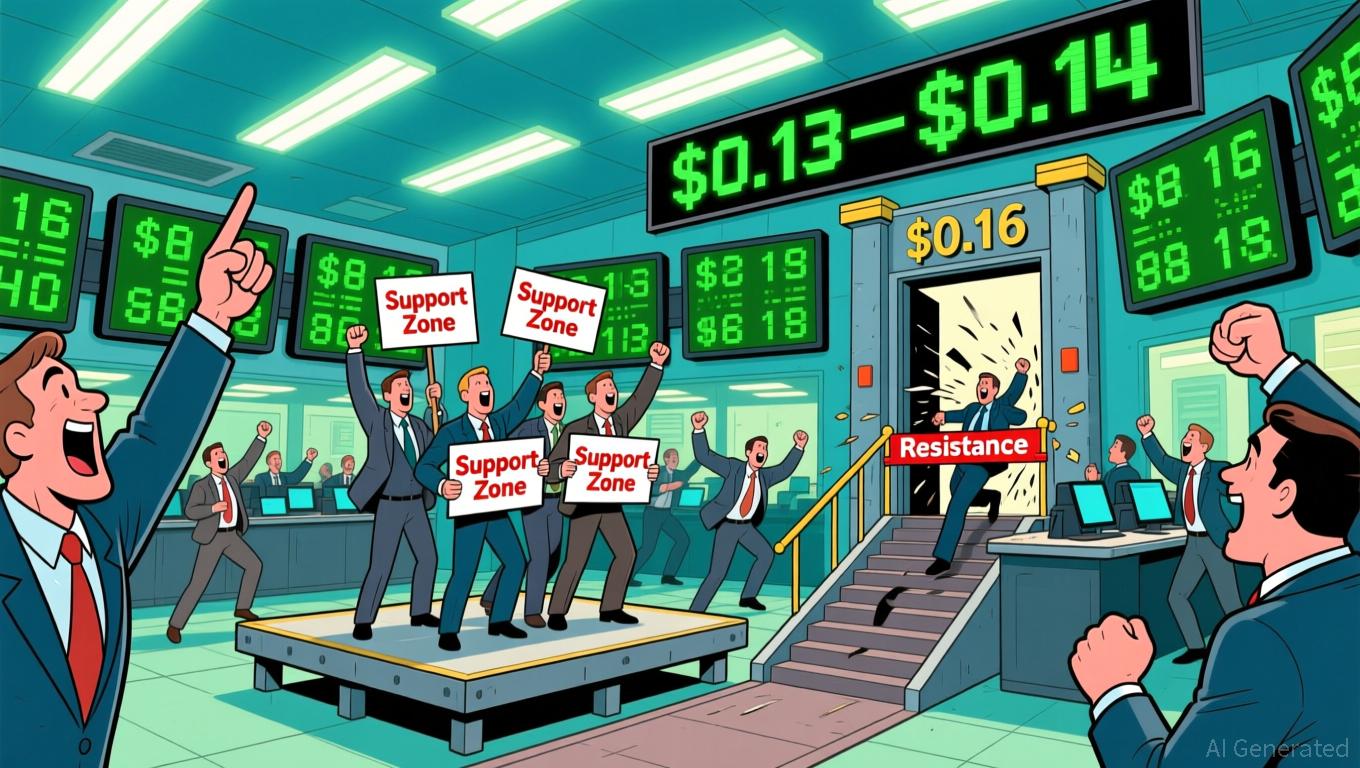South Korea Addresses Crypto Oversight Gap by Broadening Monitoring of Minor Transactions
- South Korea expanded crypto Travel Rule to 1 million won, targeting financial crimes by tracking small transactions previously unmonitored. - VASPs must now share sender/receiver data for low-value transfers, while high-risk exchanges face blocks and shareholder background checks. - The policy aims to prevent illicit activity by closing loopholes but raises concerns about user convenience and compliance costs for exchanges. - Global attention focuses on South Korea's approach as a potential model for bal
South Korea Tightens Oversight on Crypto Transactions
South Korea has advanced its cryptocurrency regulations by extending the scope of the Travel Rule to include transactions as low as 1 million won. This initiative is designed to strengthen the fight against financial crime and improve the monitoring of digital asset transfers.
The Financial Services Commission (FSC) revealed this policy update during the 19th Anti-Money Laundering Day event, marking a decisive shift toward stricter scrutiny of smaller crypto transactions. Previously, such low-value transfers often escaped regulatory attention, providing opportunities for illicit actors to move funds undetected by splitting large sums into smaller amounts.
Key Measures Introduced
- Virtual Asset Service Providers (VASPs) are now required to exchange sender and recipient details for all transactions at or below the 1 million won mark, mirroring the protocols used in conventional banking for wire transfers.
- The government has also enacted policies to restrict dealings with overseas exchanges deemed high-risk and to enforce comprehensive background checks on VASP shareholders. These checks will examine criminal history, financial stability, and social reputation.
These actions form part of a larger effort to curb money laundering, shield investors from unreliable foreign platforms, and uphold the credibility of digital asset service providers.

Implications and Challenges
This regulatory update demonstrates South Korea’s commitment to adapting established financial oversight methods for the digital currency sector. By lowering the reporting threshold, authorities aim to close gaps that could be exploited for illegal activities. However, enforcing these rules on numerous small transactions will require advanced technology and considerable resources. Crypto exchanges must also find ways to comply without overly burdening legitimate users, as critics warn that increased verification could complicate routine transactions.
Looking Ahead
The effectiveness of these reforms will depend on close cooperation between regulators and VASPs, the adoption of sophisticated monitoring systems, and coordination with international partners. South Korea’s approach is attracting worldwide attention, with other countries likely to observe its progress as they consider similar regulatory paths. The Financial Intelligence Unit is set to play a central role in enforcing these standards, maintaining a registry of non-compliant foreign exchanges, and developing strategies for decentralized platforms.
While President Lee Jae-myung has also called for broader diplomatic efforts on the Korean Peninsula, including potential changes to joint military exercises with the United States, the crypto regulation initiative stands out as a distinct and important move. It highlights the government’s dual priorities of ensuring regional security and safeguarding the financial system.
As these new rules take effect, South Korea could become a model for global cryptocurrency regulation, illustrating how traditional anti-money laundering measures can be adapted for the digital age. The country’s assertive strategy underscores the need to balance technological innovation with robust security in the fast-changing world of crypto assets.
Disclaimer: The content of this article solely reflects the author's opinion and does not represent the platform in any capacity. This article is not intended to serve as a reference for making investment decisions.
You may also like
Bitcoin News Update: S&P Rating Drop Highlights Tether’s Risky Asset Holdings and Lack of Transparency
- S&P downgrades Tether's USDT to "5 (weak)" due to high-risk reserves and transparency gaps. - Tether's 5.6% BTC exposure exceeds overcollateralization margins, risking undercollateralization if prices drop. - CEO dismisses critique as traditional finance bias, claiming no "toxic" assets in reserves. - Regulators intensify scrutiny as stablecoin centralization risks emerge amid $184B USDT circulation. - S&P urges Tether to reduce risky assets and enhance reserve disclosure to rebuild trust.

Dogecoin Latest Updates: Is a Repeat Performance on the Horizon? Holding $0.15 May Signal a 611% Rally for Dogecoin
- Dogecoin (DOGE) stabilized near $0.15 support, triggering historical 611% rally potential to $1 by 2026. - Grayscale's GDOG ETF and pending Bitwise BWOW ETF mark institutional adoption, though initial inflows remain muted. - Technical indicators show mixed momentum with RSI near oversold levels and key resistance at $0.16. - Market remains divided as ETF-driven liquidity and on-chain infrastructure contrast with macroeconomic and regulatory risks.

Turkmenistan’s Approach to Cryptocurrency: Centralized Oversight Amidst a Decentralized Age
- Turkmenistan legalizes crypto trading under strict 2026 regulations, granting state control over exchanges, mining , and custodial services. - Law mandates KYC/AML compliance, bans traditional banks from crypto services, and classifies digital assets into "backed" and "unbacked" categories. - Central bank gains authority to operate state-monitored distributed ledgers, contrasting with decentralized approaches in South Korea and Bhutan. - Framework aims to balance innovation with oversight, testing Turkme
Bitcoin News Update: Has $162 Billion Left Crypto Due to Institutional Buying or a Broader Market Pullback?
- BlackRock deposited 4,198 BTC and 43,237 ETH into Coinbase amid crypto sell-offs, despite $355.5M Bitcoin ETF outflows. - A 1.8M BTC ($162B) overnight exchange withdrawal sparks speculation about institutional accumulation or portfolio rebalancing. - $40B in BTC/ETH exchange inflows and record $51.1B Binance stablecoin reserves highlight institutional demand for regulated crypto products. - On-chain data shows 45% of large deposits (≥100 BTC) and 1.8M BTC withdrawals, indicating mixed market sentiment ah
